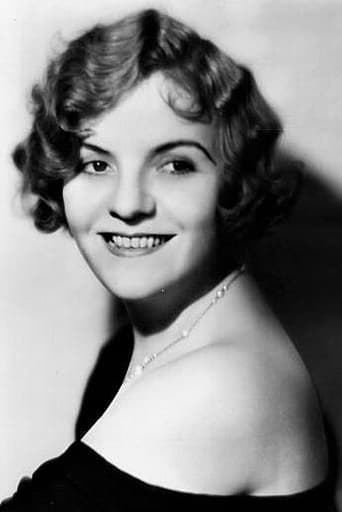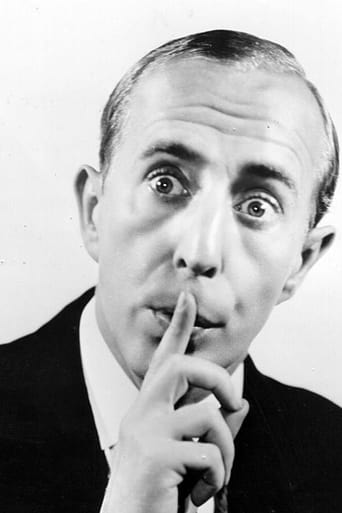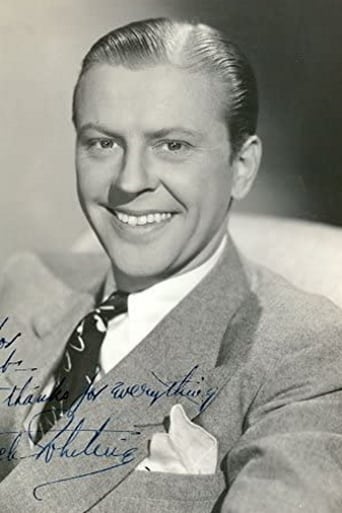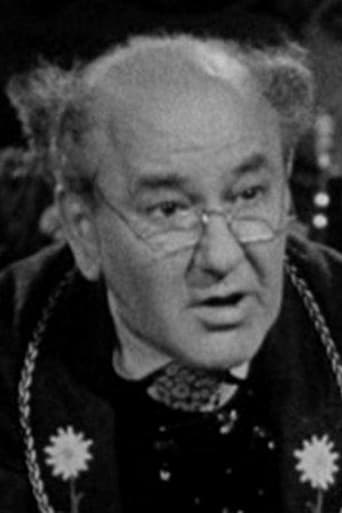kidboots
Winnie Lightner was a unique performer who was a terrific find for Warners when she stole "Gold Diggers of Broadway"(1929). Her high spirited performances as well as a genuine love of entertaining had her bursting through the dullness of "The Show of Shows". Not long after when musicals were on their way out Winnie was almost their first casualty, unfortunately just at the time when Warners felt she had earned the right to carry a big musical comedy. This was "The Life of the Party" and it was going to be spectacular - Technicolor production, romantic leads from Broadway (Jack Whiting, Irene Delroy), strong comic support (Charles Butterworth), grand tunes and even a fashion show!! But as studios started to get public feedback, Warners got jittery and ended up slashing all the songs except one. So what was left was an extremely funny gold- digger farce where performers occasionally pause to break into song but nothing happens!! Projecting a 100 watt personality Winnie proved she didn't need songs and it was one of Warners few successes in that dismal year of 1930!!A super opening as the camera flashes along the great white way giving viewers a glimpse of bright lights and the best and most popular of Warners films of 1930!! And the pace doesn't slacken as the camera pans to the music store with Flo and Dot ("the gold dust twins") strutting their stuff. Behind a bevy of sheet music plugging Warners/First National recent song hits Winnie Lightner (as Flo) sings the only song in the film, the bouncy "Poison Ivy" but it's her constant stream of wisecracks that will keep you in stitches. Dot (Irene Delroy) is the pretty one and it's the discovery that the handsome boy who she has kept faithful to has married an old dowager for her money, that send both her and Flo down the gold digging path. The first millionaire the gals fleece (out of a $5,000 wardrobe) is fashion retailer Mons. Le Maire and Charles Judels is hilarious as the hyper-active Frenchman with his funny dances and temper tantrums, all the while screaming "I Will Not Lose My Temper"!!Now in Havana and with Dot posing as a wealthy widow, Flo is in charge and boy is there a mix up!! Between Smiths - A.J. Smith, the wealthy inventor of Rush invigorating elixir, Flo mistakes him for con-man (a natty John Davidson) and she spends the rest of the movie trying to separate Dot from the man of her dreams, the real A.J. Smith (Jack Whiting) who is hanging around like a love sick puppy and who..... Charles Butterworth adds his comic revelry as a "not quite there" hotel guest who has a passion for Winnie and horses!!With no songs to sing Jack Whiting seemed superfluous, at least Delroy got to look fetching in some fashionable clothes but often the scene found them gazing at the moon, then cutting as soon as they opened their mouths to sing!! But according to a Photoplay review, only Winnie, Charles Butterworth and Charles Judell were needed as the laughs poured out of them and they did!!Highly Recommended.
calvinnme
... because she really steals the show in one of those early talkies that is not the least bit claustrophobic - there is plenty of movement, large sets, etc. This is a precode in which nothing really happens but plenty is implied, and it's fascinating to watch just from the film history angle plus it's a real hoot. The opening frame is Broadway as it appeared in 1930, and Jack Warner just has to plug everything Warner Brothers is doing in those first few frames. The neon signs advertise movies you've probably never heard of such as "Fifty Million Frenchmen", "The Song of the Flame", and "Courage". All three were made by Warner Brothers in 1930 and two of the three are as lost as the Technicolor version of this film. Next we meet song pluggers Flo (Winnie Lightner) and Dot (Irene Delroy). They are selling sheet music just a short time before the mass production of records would make their profession obsolete. Dot gets fired because she is too good looking - men are stopping to flirt not buy sheet music. Flo quits because they are a package deal.Flo wants Dot to cash in on her good looks, but Dot loves Bob, a struggling clerk on Wall Street. Everything changes when Flo finds an item in the newspaper about Bob, age 23, marrying a wealthy widow aged 55. From this point forward Dot is willing to do things Flo's way and go for the gold in a man, right down to the fillings in his teeth. The two get a job in a high fashion shop owned by a guy who has a thing for Dot, take him for half the store in expensive dresses, and head off to Havana to look for a rich guy for Dot. Now it's never explained why they have to leave the country to look for a rich guy, nor how they got the money to get to Havana in the first place, but that's beside the point.The rest of the film is a mad cap comedy of errors in which Flo mistakes a fellow fortune hunter for a recently rich inventor of a new soft drink, Dot has her moneyed mission somewhat derailed by her attraction to a good looking fellow who is staying at the same Havana hotel, and Charles Butterworth keeps showing up at inopportune times to interject some one-liners. Oh, and the guy who owned the fashion shop who Flo and Dot took for a ride in New York? He shows up at an inopportune time too.Winnie Lightner is loud and busy - kind of like a flapper version of Glenda Farrell with a good singing voice, and that was her downfall. I think she could have transitioned easily to Warner's later fast-talking comedies, but she was too associated with the early musicals that became very unpopular by 1931 and also with the roaring 20's pre-Depression era to continue to go over big. Recommended for those who enjoy watching Warner Brothers and early talking pictures go through their growing pains and for those who like being transported back to a simpler time, when a woman with some meat on her bones was considered attractive and when a man would dress up in a tuxedo just based on the possibility that he might get lucky.
lugonian
THE LIFE OF THE PARTY (Warner Brothers, 1930), directed by Roy Del Ruth, is another attempt to capitalize on the presence of Winnie Lightner based on her debut screen character from THE GOLD DIGGERS OF Broadway (1929). Though Lightner appears to be "the life of the party" through her actions and wisecracking methods, the finished product, originally intended as a musical, is a straight comedy minus any party sequences but enough life and laughter only when Lightner is concerned.Starting off with an amusing inter-title, "New York was originally purchased from the Indians for six dollars and thirty cents. The 30 cents was for Brooklyn," the plot gets underway with its introduction of two lady pals, Flo (Winnie Lightner) and Dorothy "Dot" Stottsbury (Irene Delroy) working as song pluggers for Mr. Foster (Eddie Kane) at the Acme Music Company in the Broadway district of New York City. Unable to interest anyone with popular song hits from the latest shows and motion pictures, the girls end up fired when their friend, Monsieur LeMaire (Charles Judels), comes to visit with Dot, thus disrupting the place when Mr. Foster forces him to leave. The next morning, Dot learns through a newspaper article that the man she loves, Robert Cole, age 23, has married a Mrs. James Halcon, a wealthy widow of 45. She and Flo come the conclusion that the only way to make it through life is to seek millionaires and marry them for their money, the way Bob has done. After acquiring jobs as models for fashion retailer, LeMaire, they trick him into loaning them enough clothes and take with them to Havana, Cuba, where they intend on doing some gold digging. Staying at the Grand Hotel, they make an impression by posing themselves as rich young widows. Along the way, Flo encounters Colonel Joy (Charles Butterworth), a horse breeder (who looks like a horse anyway), while Dot come across a bogus Mr. Smith (John Davidson), a male gold digger, and, through her phony fainting spells, Jerry A.J. Smith (Jack Whiting), inventor of the popular Rush soft drink. Things become more complicated when the excitable Monsieur "Yoo Hoo" LeMaire enters the scene.What makes LIFE OF THE PARTY most fascinating for film buffs is the opening sequence of the Broadway district with theater marque titles of those 1930 movie releases, mostly Warner Brothers titles, including: "The Silent Enemy," "The Song of the Flame," "Fifty Million Frenchmen," "Courage," and "Journey's End" along with current Broadway shows as "The Last Mile," along with some inside humor of Lightner calling out movie songs from 1929 releases as "Tip Toe Through the Tulips" from "The Gold Diggers of Broadway" and "Singing in the Bath Tub" from "The Show of Shows," each featuring Lightner herself. With some songs deleted prior to theatrical release, the only one that remains intact is Lightner's rendition of "Poison Ivy." Several popular tunes of the day, namely "When the Little Red Rose Gets the Blues for You," are relegated to background scoring.Often amusing, especially with the now familiar "gold digger" theme and mistaken identity angle, THE LIFE OF THE PARTY weakens as it progresses, especially through the constant annoyance of Charles Judels's frequent "Yoo Hoo" yells that loses its credibility long before its 77 minutes is up. Irene Delroy, the attractive, serious-minded gold digger, has her doses of man trouble, considering how both of them have the last name of Smith, while Lightner, naturally, gets all the laughs. Her funniest moment is where she disguises herself as a male jockey, making every effort staying on the back of the horse (Number 13) during a big race, followed by a series of mishaps until the horse comes across its biggest fear, a black cat on the race track. Rear projection is obvious, making the riding scene look phony or a reminder of a vintage silent comedy starring Ben Turpin. The result, however, are still quite funny. One liners as "We can't even boil water without ever burning it" comes as a hit or miss. Another laugh getter is Charles Butterworth, with his hair combed back and parted in the middle. A natural foil for Lightner, he worked opposite her again in two additional 1931 comedies, SIDE SHOW and MANHATTAN PARADE, which like this movie, can be seen on Turner Classic Movies cable channel.Initially produced in early Technicolor, circulating prints are now only in complete black and white form, with 1940s orchestration to a song, "He Lied and I Listened" as introduced in the Warner Brothers 1941 drama, MANPOWER, starring Edward G. Robinson and Marlene Dietrich, as its over-scoring instead. I can't swear that the title cards used for the cast and credit listings, but do know this is the way LIFE OF THE PARTY has been shown on August 1990. Considering several films bearing this title, interestingly, in 1996, American Movie Classics, which then contained a film library of mostly 20th Century-Fox and RKO Radio titles prior to 2001, surprisingly aired this 1930 Lightner comedy over its standard 1937 RKO Radio musical as part of AMC's Ann Miller birthday tribute.Though both are no cinematic masterpieces, the Lightner version is certainly a prime example of the type of movies that turned out during the dawn of sound, and something to consider. One can only hope for a rediscovery of the original Technicolor print along with the original scoring that came with the film's opening credits way back in 1930. (***)



